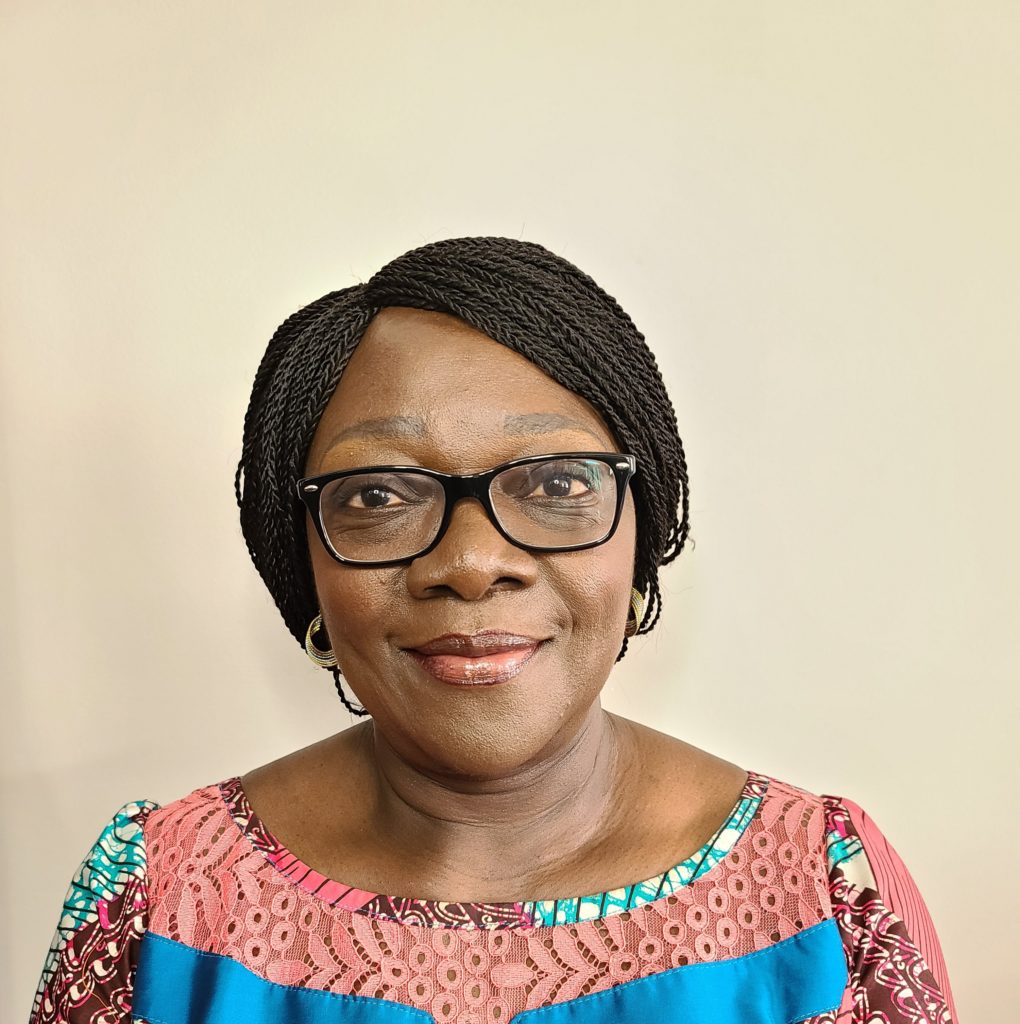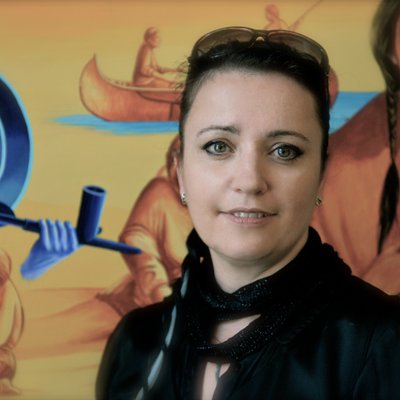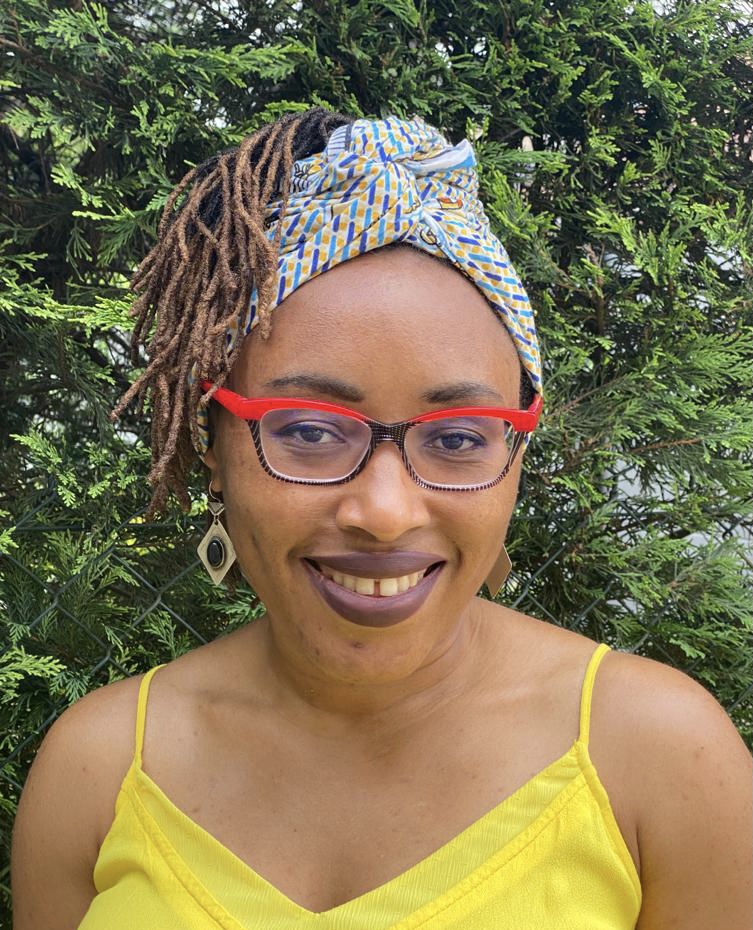On December 6, 1989, 14 women died as a result of an anti-feminist act of extreme violence. Most of them aspired to pursue scientific careers in a historically male-dominated field. Since then, despite strong emancipation of women in our society, violence against women, both moral and physical, persists.
Today, we invite you to meet and discover the work of a few Glendon professors. Though they may not share the same background, experience or areas of expertise, they are all driven by the same desire to fight for the respect and protection of women’s rights.
Gertrude Mianda – Gender, Sexuality and Women’s Studies, Glendon College, York University

Gertrude Mianda distinguishes herself as a feminist, historian and Africanist whose work is rigorously inter- and multidisciplinary. A francophone African researcher conducting research on Africa and the African diaspora for three decades, her research, teaching and all her collegial and community practices questions gender and race inequalities. Gertrude Mianda has created new international collaborations and has trained several researchers, particularly in minority situations, by raising awareness of the importance of diversity and inclusion in research.
Check out Gertrude Mianda’s publication below:
Abdi, A. A., Misiaszek, G. W., Popoff, J. M., & Mianda, G. (2022). Revisiting Francophone Sub-Saharan Africa’s Eurocentric Education System Through a Decolonial Feminist’s Len. In The Palgrave Handbook on Critical Theories of Education (pp. 537–550). Springer International Publishing AG. https://doi.org/10.1007/978-3-030-86343-2_30
Amanda Ricci – Department of History, Glendon College, York University

Amanda Ricci is an assistant professor at Glendon Campus, York University and her research focuses mainly on social movements and feminism. In 2015, she defended her dissertation on the feminist movement in Montreal (1960-90) in the Department of History at McGill University. Her current project, entitled “Global Citizens? Canadian Feminists at the World Conferences on Women, 1975-1985,” considers the ways in which Quebecers imagined themselves to be part of a global community of women during the United Nations (UN) Decade for Women, from 1975 to 1985.
Check out Amanda Ricci’s publication below:
Ricci, Amanda. « Un féminisme inclusif ? La Fédération des femmes du Québec et les femmes immigrantes ou racisées, 1966-1992. » Bulletin d'histoire politique, volume 25, numéro 3, printemps 2017, p. 102–123. https://doi.org/10.7202/1039747ar
Maya Chacaby – Department of Sociology, Glendon College, York University

Maya Chacaby aka Odehamik is an Anishinaabe (Ojibwe) woman from the Kaministiqua region. Her family comes from Red Rock First Nation. As an Anishinaabe scholar, Maya Chacaby teaches in the Department of Sociology and her publications revolve around various topics such as human trafficking, violence against Indigenous women and revitalizing the Anishinaabemowin language. Maya Chacaby is committed to fulfilling the vision proposed by elders, which is to remember where we came from and use our teachings and worldview to improve our quality of life for generations to come.
Check out Maya Chacaby’s publication below:
Anderson, K., Campbell, M., Belcourt, C., & Chacaby, M. (2018). (The Missing Chapter) On being missing. In Keetsahnak: Our missing and murdered Indigenous Sisters (pp. 125–159). The University of Alberta Press.
Rose Ndengue – Department of History, Glendon College, York University

Rose Ndengue joined the Department of History at York University’s Glendon Campus as an assistant professor in 2021. She teaches black feminisms, African and postcolonial studies, and social movements, all of which are major themes in her work as a researcher and Afrofeminist. She is currently working on a project that aims to decolonize knowledge and promote Afrofeminist narratives.
Check out Rose Ndengue’s publication below:
Belinga, Marie-Eveline, Yaël Eched, et Rose Ndengue. « Les Féministes des marges peuvent-elles parler ? Retour sur un « échec » académique et ses implications épistémologiques et politiques ». Genre, sexualité & société, no 22 (2019): [En ligne]. https://doi.org/10.4000/gss.5816.
We are grateful to them and others who study, teach and work at Glendon College. With this article, we encourage readers to also become actors of change for a better world and to combat violence against women.
In memory of the victims of December 6, 1989: Geneviève Bergeron; Hélène Colgan; Nathalie Croteau; Barbara Daigneault; Anne-Marie Edward; Maud Haviernick; Barbara Klucznik-Widajewicz; Maryse Laganière; Maryse Leclair; Anne-Marie Lemay; Sonia Pelletier; Michèle Richard; Annie St-Arneault; Annie Turcotte.
This article is dedicated to them.

